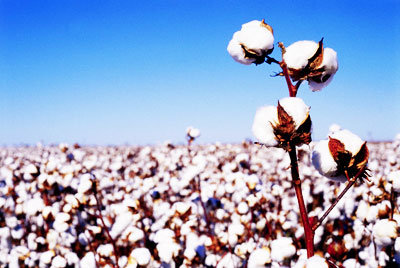By
Reuters
Reuters
Published
Jul 12, 2011
Jul 12, 2011
Ivorian cotton ginners raise output forecast
By
Reuters
Reuters
Published
Jul 12, 2011
Jul 12, 2011
July 12 - The Ivory Coast ginners' association on Tuesday raised its forecast for 2011-12 cotton output, forecasting it would rise by more than 25 percent from a year ago to 220,000 tonnes due to improved security, high farmgate prices and good weather.
 Ivory Coast, the world biggest cocoa producer, was also one of the West African region's major cotton exporters. - photo: Corbis |
The cotton sector revised its forecast made in May, when it said after a first assessment that the West African country would produce 216,000 tonnes, from 175,000 tonnes a year ago.
"We have taken stock of seedlings at the end of June. Some 207,000 hectares have been planted," Christophe N'Dry, the executive secretary of the Ivorian cotton ginners' association, told Reuters.
"The rains were delayed but have finally arrived in most regions. Some farmers will continue planting until mid-July. We therefore expect to harvest at least 220,000 tonnes in the new season," N'Dry said, adding that cotton production would be above 200,000 tonnes for the first time in eight years.
Ivory Coast, the world biggest cocoa producer, was also one of the West African region's major cotton exporters, with an annual output of about 400,000 tonnes, before a 2002-2003 civil war halved production.
Many farmers are interested in cotton this year because of the high farmgate price, set at 265 CFA francs per kg in early June, the highest in West Africa, compared with 210 francs the previous year, N'Dry said.
N'Dry said aid from the European Union, which has helped about 14,480 farmers acquire animal-drawn ploughs, and the improved security that following a four-month violent standoff after a November 28 presidential poll, would help the sector.
"The security situation in the north has improved and this has allowed us to send farm inputs (such as tools, seedlings and fertilisers) to farmers even though the price of these inputs are still very expensive," N'Dry said.
He added that the better security and political situation would also curb the smuggling of Ivorian cotton into neighbouring countries.
By Loucoumane Coulibaly
© Thomson Reuters 2024 All rights reserved.

























